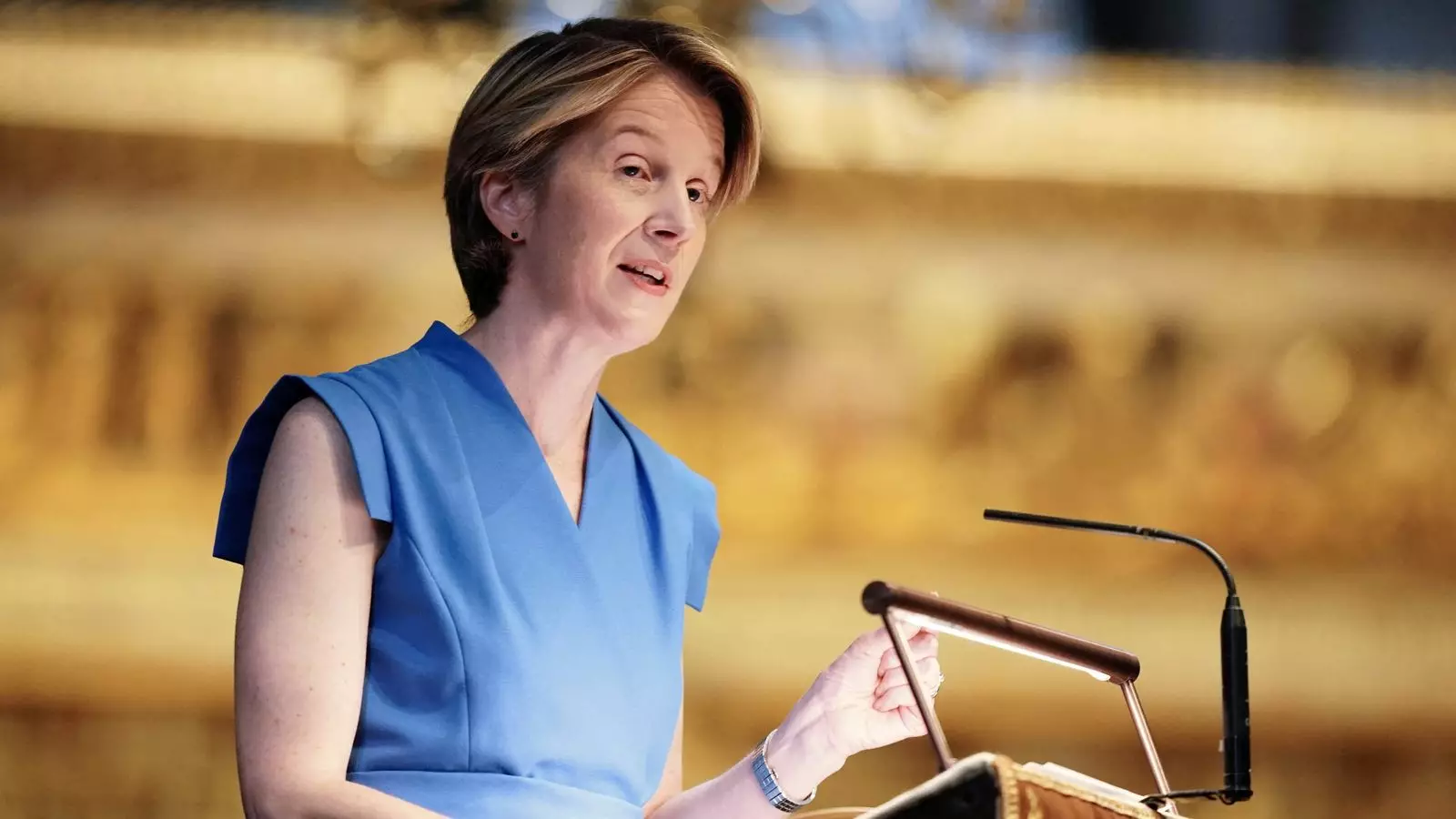In a significant development for the National Health Service (NHS), Amanda Pritchard, its first female chief executive, has announced her decision to step down from her role. Appointed in 2021, Pritchard brought a wealth of experience to the position, having previously served as NHS England’s chief operating officer and leading Gu’s and St Thomas’ NHS Foundation Trust. Her tenure has been marked by unprecedented challenges, and her departure signals a new chapter for the organization as it strives to regain its footing following the COVID-19 pandemic.
Amanda Pritchard’s role has always been more than just a career milestone; it encapsulates the struggle and resilience of the NHS during some of its most turbulent times. Upon her appointment, she assumed leadership at a point when the health service was grappling not only with the aftermath of the pandemic but also with deep-rooted systemic issues that have plagued it for years. Her decision to resign, however, comes at a time when, as she stated, “the NHS is making continued progress in our recovery,” suggesting that she believes the organization is poised for a successful transition into a new era.
Despite the progress, Pritchard’s leadership faced significant scrutiny, particularly from parliamentary committees that voiced concerns about her perceived lack of zeal for radical reform. The public accounts and health committees expressed disappointment over her performance during questioning sessions, labeling her answers as “lengthy and diffuse.” Such critiques have fueled debates regarding the effectiveness of her leadership and raised questions about the adequacy of current strategies in addressing the more profound challenges confronting the NHS.
Acknowledging areas for improvement, Pritchard herself admitted on a recent BBC Breakfast interview that “we’re not all brilliant performers at committee hearings.” This recognition of her team’s shortcomings reflects a deeper issue within the organization — the importance of accountability and transparency in health leadership. The critiques she faced hint at a broader sentiment that perhaps, amidst the profound challenges of the pandemic, there was an expectation for bolder, more decisive leadership.
Nevertheless, it is crucial to recognize the substantial accomplishments that have characterized Pritchard’s time at the helm. Health Secretary Wes Streeting articulated the essence of her leadership, expressing that Amanda can take immense pride in guiding the NHS through its most challenging period in modern history. The pandemic necessitated rapid adaptations and innovative approaches — challenges that Pritchard, to her credit, managed with a degree of integrity and commitment that is commendable.
One profound takeaway from Pritchard’s leadership relates to how effectively she navigated the shifting political landscapes while overseeing the health service. Serving under six separate health secretaries during her time as CEO, Pritchard demonstrated a unique ability to maintain focus on core health agendas, emphasizing patient care amidst the administrative turbulence.
With her announcement, the leadership of NHS England enters a period of transition, marking the appointment of Sir James Mackey as the new chief executive. Mackey brings a robust background from his role as chief executive of Newcastle Hospitals Foundation Trust, alongside experience in leading national elective recovery initiatives. His appointment symbolizes a potential shift in strategy and priorities for NHS England as it collectively grapples with ongoing issues such as staffing shortages and long waiting times for treatments.
As Amanda Pritchard leaves behind a foundational structure intended to support the NHS moving forward, it is worth reflecting on her contributions amid emotional tributes from colleagues and officials who commend her legacy. The complexity of leading a vast healthcare service during times of crisis cannot be understated, and her commitment to advancing health outcomes for patients will remain a defining aspect of her career.
Pritchard’s exit could signify not only a change in leadership but also a critical juncture for NHS England as it strives to rebuild and innovate in a post-pandemic landscape. The implications of her departure will resonate within the health service for years to come, as the focus now shifts toward fortifying the NHS’s future endeavors, leveraging lessons learned during a period of unprecedented trials.


Leave a Reply